Trump declares US in 'culture war,' calls flying Confederate flag 'freedom of speech'
As President Donald Trump ramps up rhetoric stoking racial divisions in the country, asked directly to give his personal stance on the Confederate battle flag's place in society, Trump said, for him, it's "very simple -- it's freedom of speech."
"You do what you do, it's freedom of speech. NASCAR can do whatever they want, and they've chosen to go a certain way, other people choose to go a different route, but it's freedom of speech," Trump told Nexstar in an interview Tuesday, on the heels of a controversial tweet appearing to criticize the racing giant for banning the flag.
In a separate interview Tuesday, the president also declared, "We are in a culture war."
The flag has become a flash point in that increasingly bitter debate -- amplified by Trump as he tries to regain lost ground in a reelection campaign dominated by how he's dealt with the pandemic.
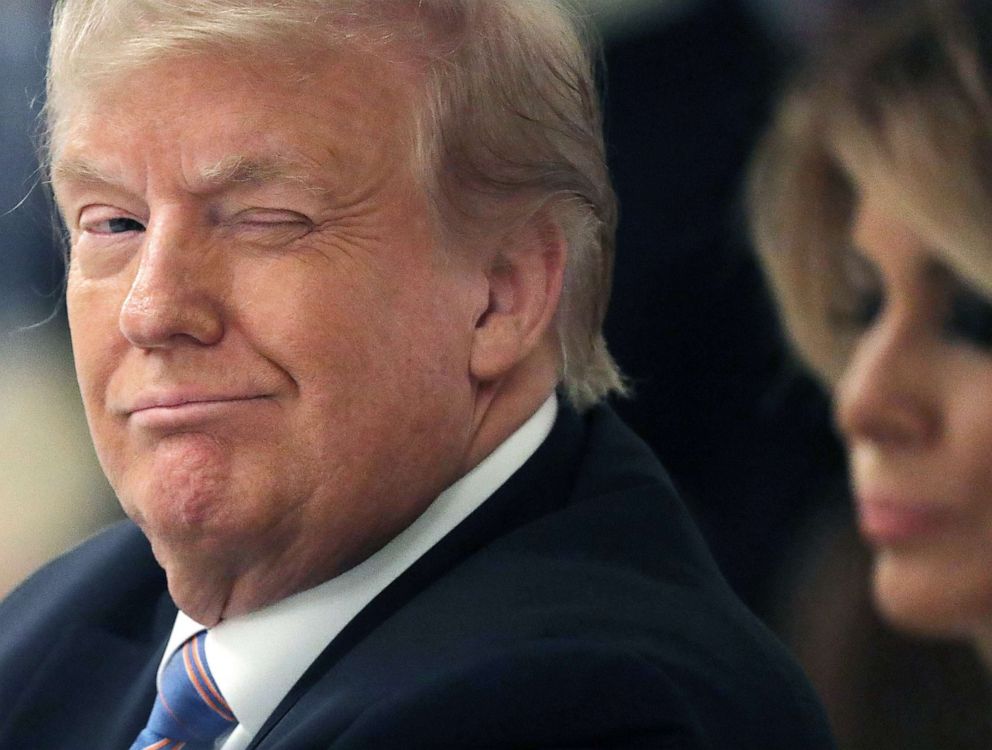
"If the Republicans don't toughen up and get smart and get strong and protect our heritage and protect our country, I think they're going to have a very tough election," he told RealClear Politics.
Trump contradicted his own White House press secretary Kayleigh McEnany, who just the day before, looking to counter reports calling the president's Fourth of July speeches "dark and divisive," said, "This vision is not a culture war."
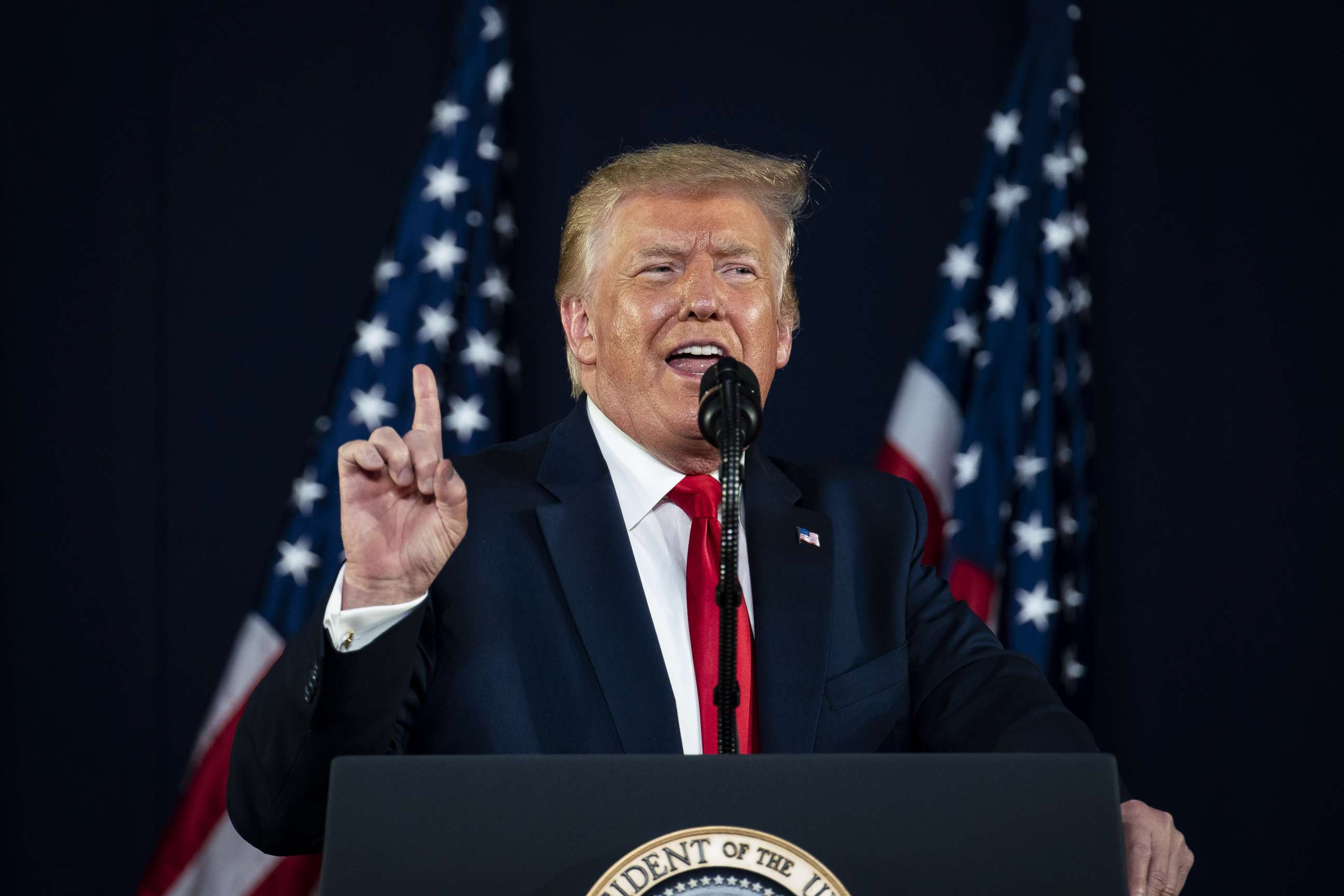
At that briefing Monday, she also deflected repeated questions about the president's NASCAR tweet and where Trump stood the Confederate flag issue, saying he hadn't taken a position.
"I spoke to him this morning about this, and he said he was not making a judgment one way or the other," McEnany said, when asked about the president's tweet. "At the very end the ban on the flag was mentioned in the broader context of the fact that he rejects this notion that somehow NASCAR men and women who go to these sporting events are racist."
As versions of the Confederate flag come down at Mississippi state government buildings and elsewhere, Trump's calling displaying it "freedom of speech" may also be setting him up for a showdown with the United States military.
As of earlier this week, the Defense Department was making plans to ban Confederate flags and other divisive symbols from all military bases which could be finalized as early as this week. A U.S. official told ABC News that the Pentagon last week asked the military services to review the proposed language of the ban and address any concerns or explain how they would carry out.
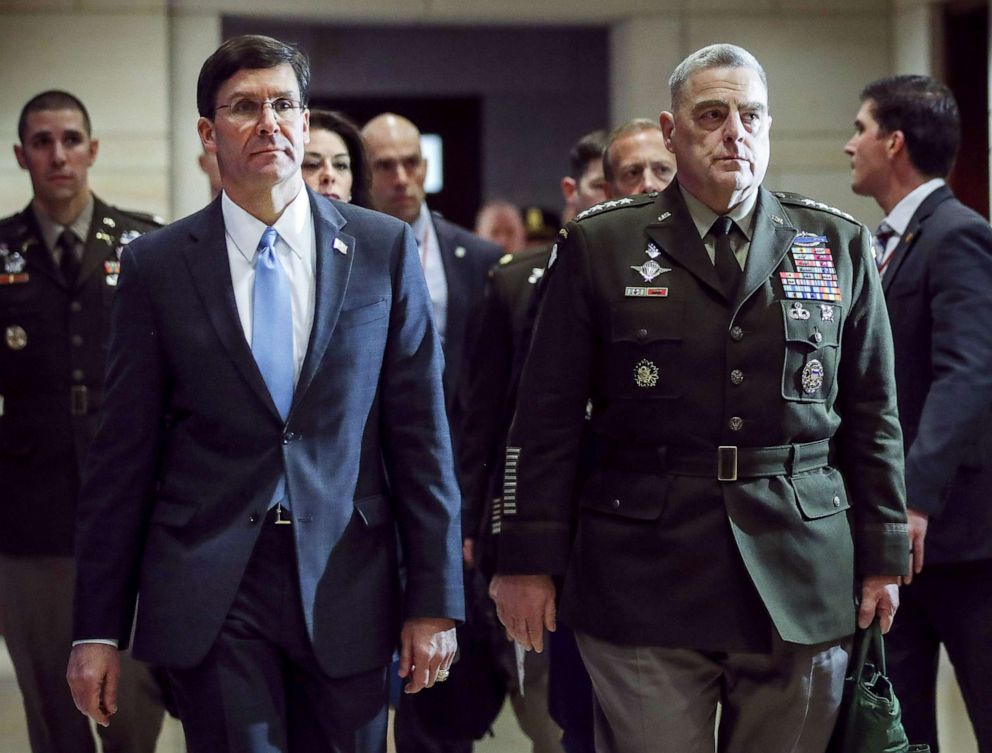
Back in February the Marine Corps was the first military service to ban Confederate flags and divisive symbols, a ban that went into effect in June.
"It became pretty clear that some symbols were being hijacked by organizations and used a very bad, negative way," General David Berger, the Commandant of the Marine Corps told ABC News last week. "The Confederate battle flag was part of that."
Berger said he undertook the move because divisive symbols undermine unit cohesion.
In the wake of George Floyd's death the Army and Navy announced plans to work on their own bans -- until the Defense Department asked that they hold off unilateral action until they came up with a comprehensive plan.
At least one four-star general serving internationally has taken the lead on his own command ahead of the Pentagon announcement.
The head of U.S. Forces Korea, Army Gen. Robert Abrams, also banned the Confederate flag on all USFK installations last month, saying in a memo, "The Confederate Battle Flag does not represent the values of U.S. Forces assigned to serve in the Republic of Korea."

"While I acknowledge some might view it as a symbol of regional pride, many others in our force see it as a painful reminder of hate, bigotry, treason, and devaluation of humanity," Adams said. "Regardless of perspective, one thing is clear: it has the power to inflame feelings of racial division."
The growing pressure to ban the Confederate flag from bases also comes as the federal government grapples with the decision to rename ten of them named after Confederate officers scattered across the South.
The GOP-led Senate Armed Forces Committee in June added an amendment to do so in its upcoming, annual Defense bill, and although the measure received bipartisan support, President Trump was quick to express opposition.
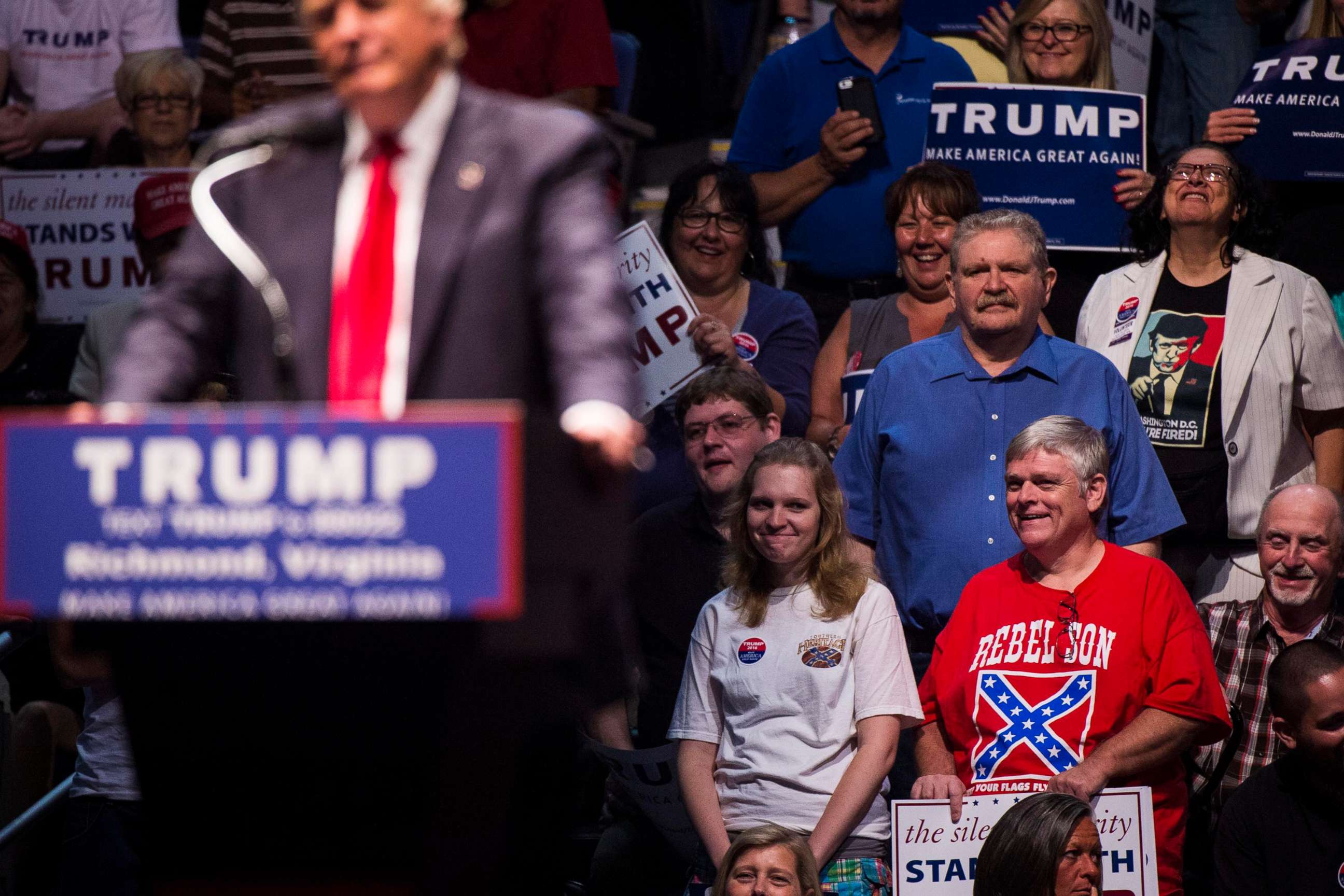
In a tweet last week, Trump said he would veto the bill because of the amendment -- "plus other bad things!"
Republican Sen. Mike Rounds of South Dakota, a member of the committee which approved the measure, asked directly last month about the president's opposition, said, "Well, we'll work that through, but we're moving in the right direction."
Since Rounds' comments, a growing number of state and local governments, schools and sporting leagues have also attempted to reconcile the role racism has played in their own histories -- including with the state of Mississippi, once the heart of the Confederate South.
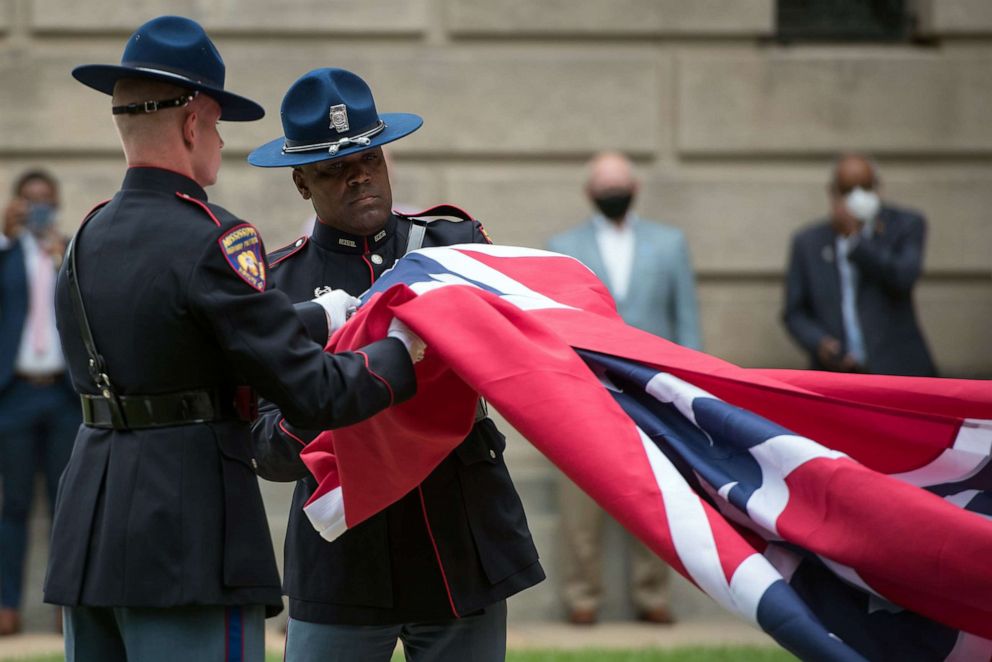
Republican Gov. Tate Reeves of Mississippi, a Trump ally, signed a bill last week to remove the Confederate battle emblem from the state flag, saying at the ceremony, "This is not a political moment to me but a solemn occasion to lead our Mississippi family to come together, to be reconciled and to move on."
Trump has seen resistance from his own party since tweeting Monday that NASCAR's only full-time Black driver should apologize for an investigation he did not call for and "that & Flag decision has caused lowest ratings EVER!"
Republican Sen. Lindsey Graham of South Carolina said it "made perfect sense" that Bubba Wallace was concerned about a noose found in his garage and argued NASCAR was trying to "grow" its fan base by banning the Confederate flag.
"One way you grow the sport is you take images that divide us and ask that they not be brought into the venue," Graham told Fox News Radio Monday.
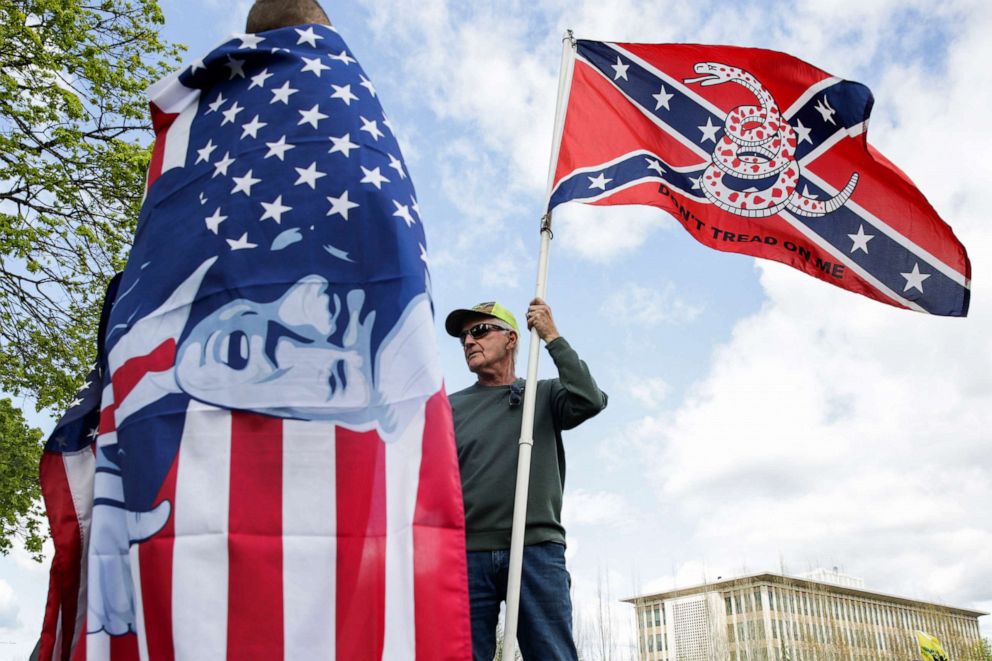
While Trump has warned Republicans to "toughen up," a rift in his party appears to grow in size.
"We're starting to see some cracks within the Republican Party -- and that's one of the things that makes Trump's comments so strange -- because he does really seem to be left behind right now," said Kevin Levin, a historian based in Boston who specializes in Civil War history.
Levin went on to note that even with President Trump not explicitly saying the word "Confederate," whether in his recent speeches or tweets, most Americans can deduce what the president is getting at.
"It's a dog whistle," he said, noting the White House's repeated references to "our history and our heritage."
"People know how to interpret that," he added.
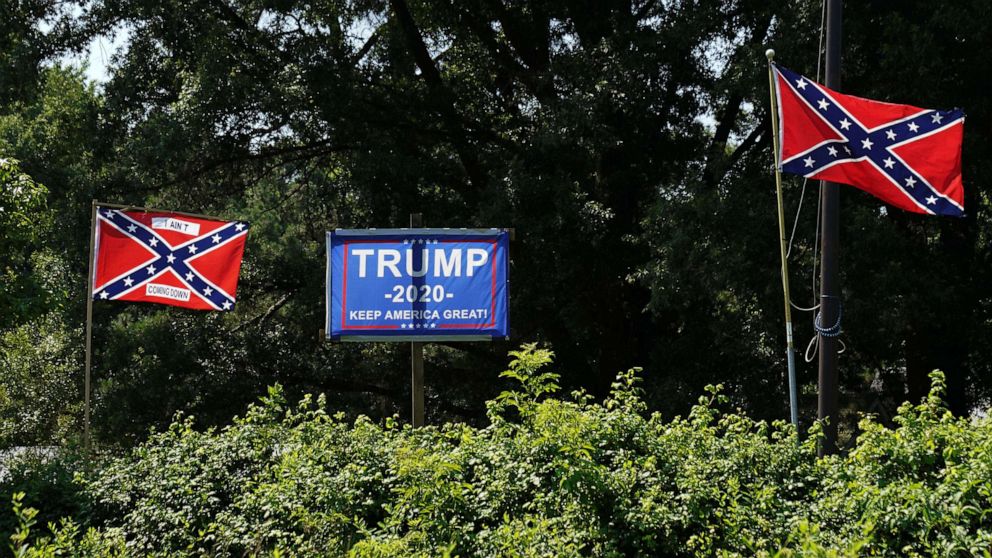
McEnany at Monday's briefing went on to describe what she called "vast cancel culture" across the nation and warned against people taking down statues of Gandhi and George Washington when questioned about the Confederacy.
"[Trump] stands against the demonization of Americans, and he stands firmly on the side of preserving our history," she emphasized.
Levin, noting the majority of Confederate symbols coming down are being removed by local governments and not "mobs," said a clash over the Confederacy may provide Trump with an opportunity -- though he notes the tension surrounding these symbols have existed well before Trump took office.
"Trump likes to think of himself as someone who has the support of the military. A showdown like this obviously doesn't lend itself well to that narrative, but, if anything, it will give Trump what he wants," Levin said. "Distraction."
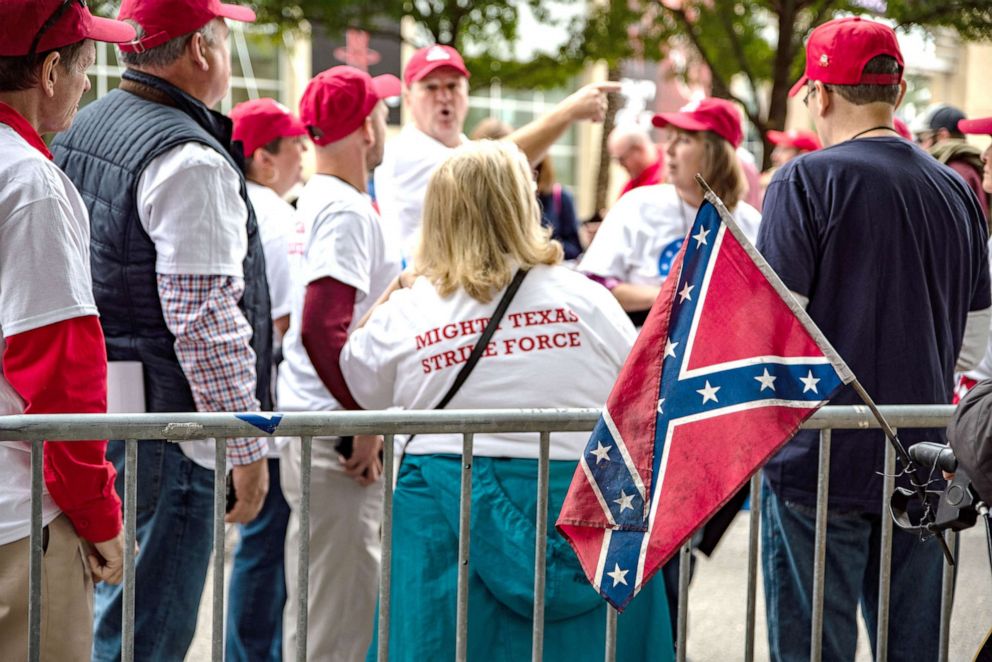
But Trump hasn't always been a hard-liner for flying the battle flag.
Notably, in Trump's first news conference as a presidential candidate, asked whether he agreed with then-South Carolina GOP Gov. Nikki Haley's decision to remove the Confederate battle flag from the State Capitol grounds, Trump said "yes."
"I think it probably does, and I think they should put it in the museum," he answered in June 2015. "Let it go. Respect whatever it is you have to respect because it was a point in time, and put it in a museum. But I would take it down."
ABC News' Cindy Smith and Ben Gittleson contributed to this report.





